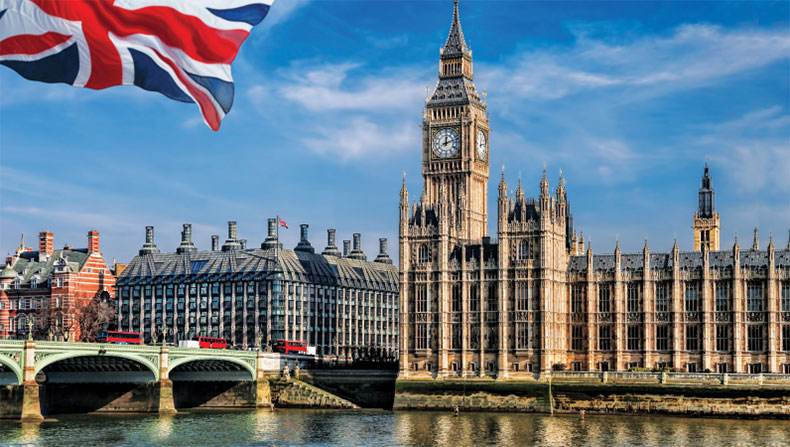- Remittance
- Exchange Rate
- Stock
- Events
- EasyCard
- More
- Download
What are the advantages of studying abroad in the United Kingdom?How to transfer money ?
As one of the centers of global education, the United Kingdom has always been a popular destination for many people pursuing higher education. According to the QS “2025 Best Study Abroad Cities Rankings”, London has been ranked first for six consecutive years. Are you planning to study in the United Kingdom? Do you know anything about studying in the United Kingdom? Don’t go away, I will answer them one by one for you.

What are the advantages of studying in the United Kingdom?
United Kingdom universities are far ahead in global university rankings, with research strength ranking second in the world. Education in the United Kingdom not only enhances academic ability, but also improves Class Skills and provides extensive employment opportunities after graduation.
Academic environment
The academic environment in the United Kingdom is renowned for its high standards and rigorous quality of education, providing students with a wealth of learning and research opportunities that contribute to Career Development.
Employment options
After completing your studies, you will face the choice of further education or entering the workplace. The United Kingdom government’s work visa policy for international students provides more flexibility, a dynamic job market, and a wide range of employment opportunities, which can bring you more choices. It provides a variety of graduate study opportunities from master’s to doctoral, facilitating further education.
How much does it cost to study in the United Kingdom?

The cost of studying abroad in the United Kingdom is divided into two parts: tuition and living expenses. Let’s take a detailed look at the approximate data for these two aspects.
United Kingdom tuition fees
Undergraduate tuition fees for international students
The annual tuition fee for undergraduate international students in the United Kingdom ranges from £33,050 to £48,620. The tuition fee for medical majors can even be as high as £61,435, but the tuition fee for most majors is between £15,900 and £19,300.
The amount of tuition fees is also related to the length of the course. For example, in the United Kingdom, undergraduate programs are generally 3 years, but in some regions such as Scotland, undergraduate programs are 4 years, so you need to prepare an additional year of tuition fees.
Master’s tuition fees for international students
The cost for master’s degree international students ranges from £17,109 to £20,167, with medical majors slightly higher at £47,100, which is cheaper than undergraduate medical majors. The tuition fee for MBA can be as high as £57,200.
Like undergraduate students, the annual tuition fee for master’s students is mostly between £12,000 and £20,000.
Living expenses for studying abroad in the United Kingdom
The United Kingdom is divided into England, Scotland, and Wales. Broadly speaking, prices in England are generally higher than those in Scotland and Wales. There are also certain differences in prices and consumption levels across England.
Prices in London, the capital of the United Kingdom, and the Greater London area are the highest in the United Kingdom, followed by prices in York, Southampton, and Nottingham.
London area
Taking popular study abroad cities as an example, let’s take a look at Imperial College London. London is the financial and political center of the United Kingdom, so its expenses are higher compared to other regions. According to data provided by Imperial College London, the cost of living for international students in the London area is approximately £15,200 per year.
- Accommodation : Approximately £9,400
- Meals : Approximately £2,600
- Travel Fee : Approximately £1,150
- Other leisure and entertainment expenses : about £2,100
How to send money to the United Kingdom more conveniently and cheaply
Traditional bank telegraphic transfer is a highly recognized remittance method, but its fees are relatively high. Its handling fees usually depend on the bank’s pricing policy and may include fixed fees and percentage fees.
Here we introduce a more convenient and favorable remittance tool, namely BiyaPay. Of course, there are many other ways, and everyone can choose according to their own needs.
BiyaPay supports real-time exchange rate inquiry and exchange of more than 20 legal currencies and more than 200 digital currencies. It supports overseas remittances in most countries or regions around the world. You can exchange digital currencies for fiat currency and withdraw to your United Kingdom bank account, which can effectively solve the problem of remittance restrictions. It also has the following advantages:
- Remittance fees as low as 0.5%, low fees
- Integrated with local transfer methods in most regions, it can achieve zero cost in the intermediate process of bank remittance.
- It can achieve instant payment and provide efficient service.
How to Study in the United Kingdom
Application process
Applying to study in the United Kingdom requires careful planning and preparation. The United Kingdom has many world-renowned universities such as Oxford and Cambridge, as well as colleges that focus on specific disciplines. Each university has a unique teaching style and professional advantages. You need to choose the appropriate university and course based on your academic interests and career planning.
The application requirements usually include high school transcripts, language scores (such as IELTS or TOEFL), personal statement, and recommendation letters. The personal statement is a key part and needs to clearly express academic goals, career plans, and reasons for choosing the school. Some courses may require relevant work experience or professional background.
The application deadlines for different universities vary, usually between October and January of the following year.
Student visa
For those who plan to study in the United Kingdom for more than six months, obtaining a suitable student visa is necessary. The student visa in the United Kingdom mainly includes Tier 4 (General) student visa.
- Visa application conditions : As an applicant, you must have been accepted by a licensed college and have received a Confirmation of Acceptance (CAS) from the school. In addition, you need to prove that they have sufficient funds to pay tuition fees and living expenses in the United Kingdom, as well as meet language proficiency requirements.
- Application process : You need to fill out the application form online, pay the visa fee, and submit biometric information (fingerprints and photos) at the designated visa application center. The visa application process also includes providing relevant supporting documents such as passports, school admission letters, financial proof, etc.
- Visa fees and processing times : Visa fees are approximately 348 pounds sterling, but this may vary by country. Processing times for student visas are usually 3 weeks, but it is recommended to apply several months in advance to avoid any delays.
Summary
Finally, I hope this article can provide you with valuable information and help. I wish all of you who are about to embark on a study abroad journey in the United Kingdom academic success and a bright future!

























